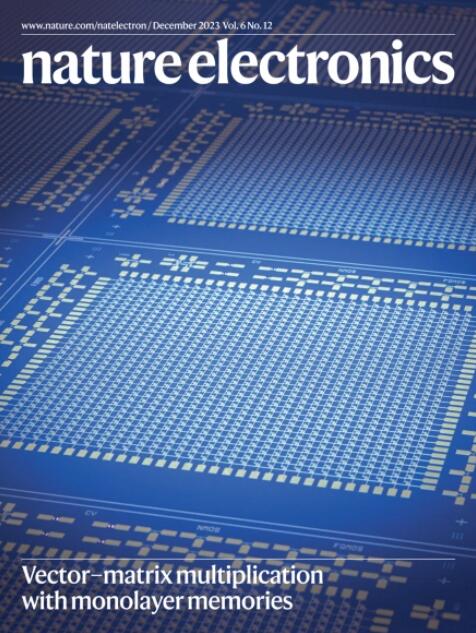A high-efficiency elementary network of interchangeable superconducting qubit devices
IF 40.9
1区 工程技术
Q1 ENGINEERING, ELECTRICAL & ELECTRONIC
引用次数: 0
Abstract
Modular architectures could be used to scale quantum devices to the point of fault tolerance and utility. Such modularity is of particular value with superconducting qubits, where monolithically manufactured devices are limited in both system size and quality. However, although prototypical quantum device networks have been fabricated, the development of quantum systems with both interchangeability and high-fidelity operations remains challenging. Here we report a modular architecture for scaling quantum processors with reconfigurable and expandable networks. We develop a high-efficiency interconnect based on a low-loss detachable cable connection between two superconducting qubit devices. We overcome residual loss through a fast pump scheme, enabling intermodule SWAP efficiencies at the 99% level in less than 100 ns. We use the scheme to generate high-fidelity entanglement and operate a distributed logical dual-rail qubit. With an error rate of around 1%, our interdevice operations are at the threshold for fault tolerance. An interconnect based on a low-loss detachable cable connection between two superconducting qubit devices can be used to create elementary quantum networks of interchangeable superconducting quantum devices.

可互换超导量子比特器件的高效基本网络
模块化架构可用于将量子器件扩展到容错和实用的程度。这种模块化在超导量子比特中具有特别的价值,在超导量子比特中,单片制造的设备在系统尺寸和质量上都受到限制。然而,尽管原型量子设备网络已经被制造出来,但具有互换性和高保真操作的量子系统的发展仍然具有挑战性。在这里,我们报告了一种模块化架构,用于缩放具有可重构和可扩展网络的量子处理器。我们开发了一种基于两个超导量子比特器件之间的低损耗可拆卸电缆连接的高效互连。我们通过快速泵浦方案克服了剩余损耗,在不到100 ns的时间内实现了99%的模块间SWAP效率。我们使用该方案产生高保真纠缠并运行分布式逻辑双轨道量子比特。错误率约为1%,我们的设备间操作处于容错阈值。
本文章由计算机程序翻译,如有差异,请以英文原文为准。
求助全文
约1分钟内获得全文
求助全文
来源期刊

Nature Electronics
Engineering-Electrical and Electronic Engineering
CiteScore
47.50
自引率
2.30%
发文量
159
期刊介绍:
Nature Electronics is a comprehensive journal that publishes both fundamental and applied research in the field of electronics. It encompasses a wide range of topics, including the study of new phenomena and devices, the design and construction of electronic circuits, and the practical applications of electronics. In addition, the journal explores the commercial and industrial aspects of electronics research.
The primary focus of Nature Electronics is on the development of technology and its potential impact on society. The journal incorporates the contributions of scientists, engineers, and industry professionals, offering a platform for their research findings. Moreover, Nature Electronics provides insightful commentary, thorough reviews, and analysis of the key issues that shape the field, as well as the technologies that are reshaping society.
Like all journals within the prestigious Nature brand, Nature Electronics upholds the highest standards of quality. It maintains a dedicated team of professional editors and follows a fair and rigorous peer-review process. The journal also ensures impeccable copy-editing and production, enabling swift publication. Additionally, Nature Electronics prides itself on its editorial independence, ensuring unbiased and impartial reporting.
In summary, Nature Electronics is a leading journal that publishes cutting-edge research in electronics. With its multidisciplinary approach and commitment to excellence, the journal serves as a valuable resource for scientists, engineers, and industry professionals seeking to stay at the forefront of advancements in the field.
 求助内容:
求助内容: 应助结果提醒方式:
应助结果提醒方式:


